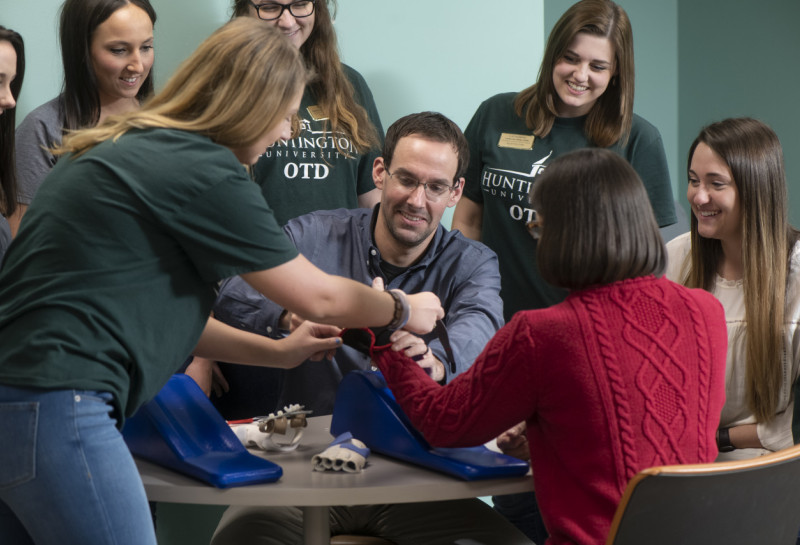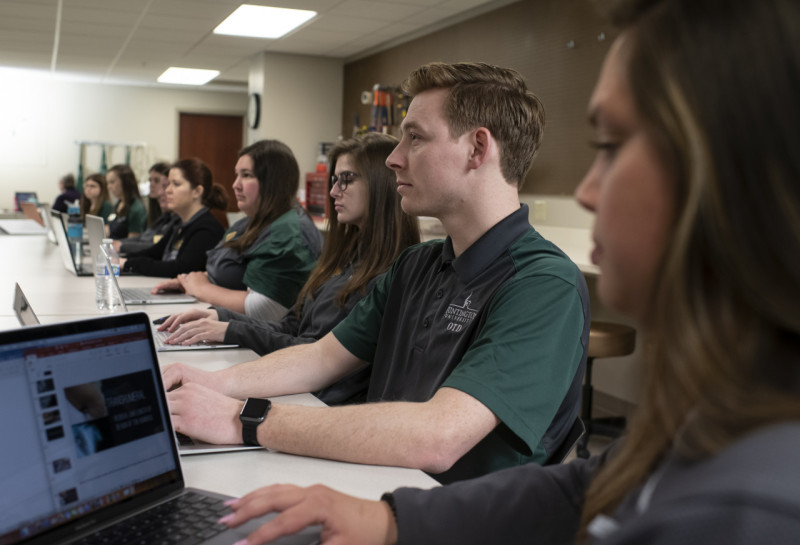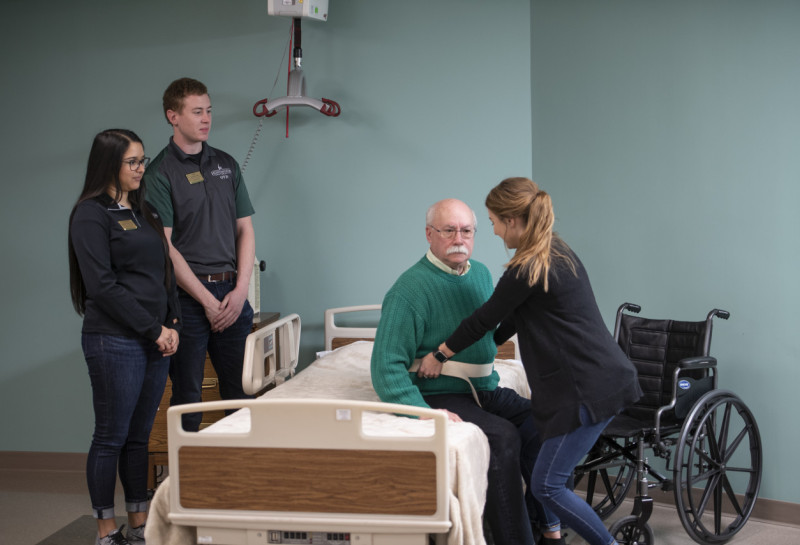All of the following required courses are offered at Huntington University. Please review the application process and admission requirements for further information or contact us via email at graduate@huntington.edu or by phone at (800) 600-4888. For questions about a specific prerequisite, complete this form.
Anatomy & Physiology I
(3 credits; Fall)
An introduction to the form and function of the human body. Topics include the basic biochemical and cellular foundations of the body as well as the integumentary, skeletal, muscular and nervous systems. Disorders of each system will be introduced as appropriate. Must be taken concurrently with BI 241L.
(1 credit; Fall)
Laboratory experiences to compliment the topics discussed in lecture. Computer and Web-based technologies will be used to complement hands-on learning in the lab. Must be taken concurrently with BI 241.
Anatomy & Physiology II
(3 credits; Spring)
A further introduction to the form and function of the human body. Topics include the circulatory, respiratory, digestive, urinary and reproductive systems. Human development and genetics will also briefly be discussed. Disorders of each system will be introduced as appropriate. Must be taken concurrently with BI 242L.
(1 credit; Spring)
Laboratory experiences to compliment the topics discussed in lecture. Computer and Web-based technologies will be used to compliment hands-on learning in the lab. Cats will be used for dissections. Must be taken concurrently with BI 242.
Biology
Note: This is an example of a course that would meet this requirement. Other biology courses could meet this requirement.
(3 credits; Fall, Spring)
This course is a general survey of biological principles for nonscience majors. Students will study ecology and environmental stewardship, origins, nutrition, structure and function of the human body, disease, genetics and biotechnology. Christian perspectives on these topics and applications to everyday life are emphasized. Must be taken concurrently with BI 111L.
(1 credit; Fall, Spring)
Laboratory exercises illustrate biological concepts and provide experience with techniques in biology. Includes field trips, field measurements and laboratory work. Must be taken concurrently with BI 111.
Psychology
(3 credits; Fall, Spring)
A survey of the principles, methods and findings in various areas of psychology. Specific topics include: development, socialization, consciousness, personality, motivation and emotion, learning and memory, physiology, neuroscience, stress and coping, and psychopathology.
(3 credits; Fall, Spring)
An examination of the symptoms, etiology and treatment of abnormal behavior. Current diagnostic classifications are used as a conceptual framework. Prerequisites: PY 111 and sophomore standing at time of registration
Social Science
Note: These are examples of courses that would meet this requirement. Other social science courses could meet this requirement.
(3 credits; Fall, Spring)
Basic concepts, theories, methods and principles of sociology. Topics will include social institutions, the dynamics of change and the diverse behavior of people in different parts of the world.
(3 credits; Spring Odd Years)
This course will focus on the perspectives and terminology of the field of cultural anthropology, including the development of culture, similarities and differences among various cultures and processes of change.
Statistics OR Research
(Note: These are examples of courses that would meet this requirement. Other statistics and research courses could meet this requirement.)
(4 credits)
In this course, students will develop familiarity with advanced statistical methods as they are applied to nursing and health care. These will include multiple linear regression, factor analysis and multivariate analysis of variance. Students will have the opportunity to use statistical software packages such as SPSS. A brief introduction to structural equation modeling and psychometric methods may be offered.
(3 credits; Fall)
This course focuses on the analytical techniques used in behavioral science research. Topics include the anatomy of the experimental method, characteristics of variables, reliability and validity considerations, sources of experimental error, data analysis techniques, APA scholarly writing and ethical issues in research. Students will engage in data collection using multiple research methods, analyses and interpretation. Students will also be introduced to the SPSS statistical program. Prerequisites: PY 111, MA 151, one additional course in psychology, and sophomore standing at time of registration
Medical Terminology
(1 credit; Fall and January Term)
This course introduces medical words and terms through an analysis of their construction, including prefix, suffix, root, connecting and combining forms. Medical meanings applicable to the structure, function and diseases of the human body are stressed.














